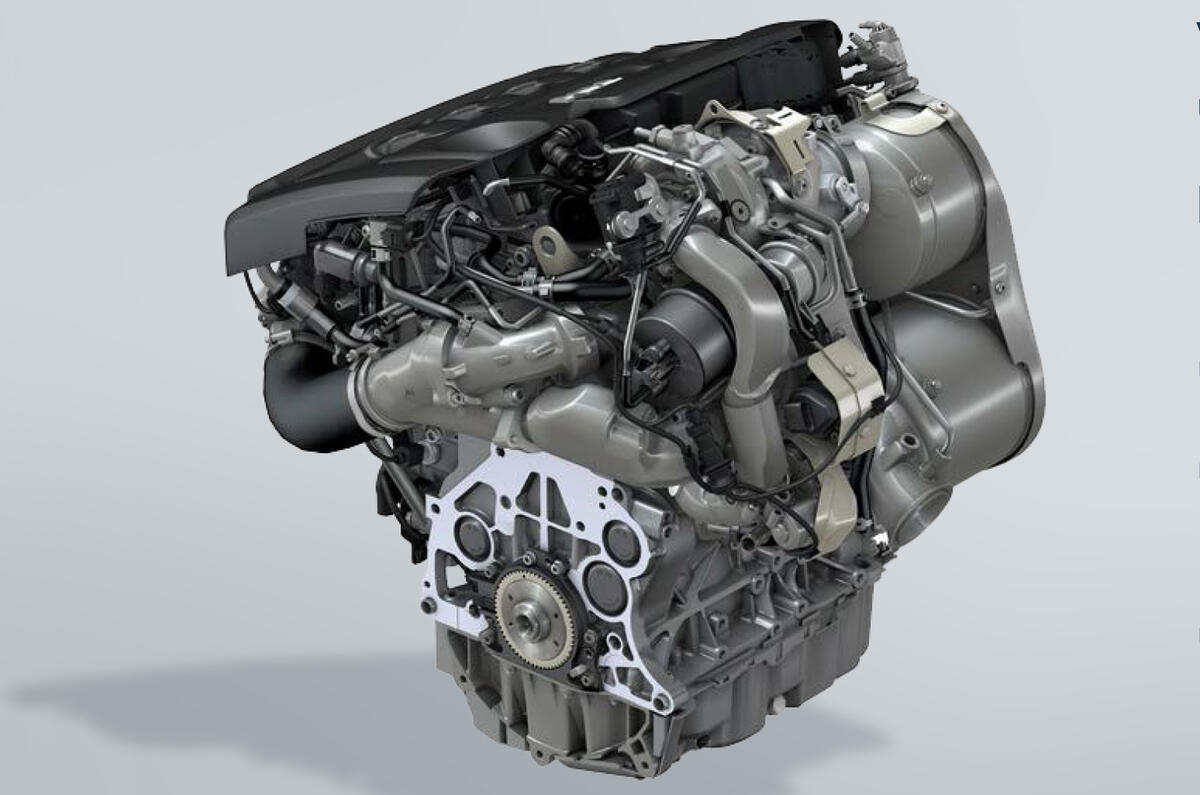Volkswagen has showcased an advanced 268bhp version of its turbocharged 2.0-litre four-cylinder diesel engine in a technical presentation at its Wolfsburg headquarters in Germany.
The power plant is expected to play an integral role in Volkswagen's efforts to meet tough CO2 emission targets that form part of new EU regulations set to come into force in 2020.
The new engine, described as a development of the existing EA288 unit used across the Volkswagen line-up, is claimed to deliver a 14 per cent improvement in power and economy over the most powerful variant of the Volkswagen diesel currently in production, the 237bhp engine recently unveiled in the Volkswagen Passat.
Among the developments brought to the new diesel is a two-stage electrically operated turbocharger, a piezo valve common rail injection system that operates at pressures of up to 2500bar and a newly engineered variable valve timing system.
With 268bhp, Volkswagen’s new 2.0-litre four-cylinder diesel engine kicks out 10bhp more than its recently updated 3.0 V6 diesel, as found in the facelifted Volkswagen Touareg.
Volkswagen is yet to reveal a definitive torque figure for the new diesel, which is earmarked to power upper range models, including an upcoming production version of the Cross Blue SUV concept in a transverse mounting. However, Wolfsburg officials suggest it is on a level comparable to the 237bhp variant, which boasts 369lb ft.
In addition to the new diesel, Volkswagen has also provided limited details to its new 10-speed dual shift gearbox (DSG), as revealed at the Vienna motor symposium earlier this year and planned to go into production in 2016.
A development of the existing six-speed wet clutch unit, the new 10-speed twin clutch gearbox is also being looked upon to contribute to a further improvement in fuel economy and reduction in emissions throughout the Volkswagen line-up.
Codenamed DQ511, the new gearbox has been engineered to handle torque loadings of up to 405lb ft, suggesting it could be coupled with a wide range of Volkswagen engines, including the latest variant of its four-cylinder diesel.
Among the features offered by the 10-speed DSG is a coasting function that switches off the engine during periods of trailing throttle and then starts it automatically for added fuel savings, as well as a newly engineered brake energy recuperation system described as being more efficient that the system presently in use at Volkswagen.
Get the latest car news, reviews and galleries from Autocar direct to your inbox every week. Enter your email address below:




Add your comment
Reliability
Flow-No
Meh
Will86 wrote:It's just a 2.0
No it isnt, its got new injectros, new injection pump (500bar more powerful) and electric turbos (no lag), did you actually READ the article !!??
typos1 wrote:Will86
READ it? No, but I did read it. It's quite normal for manufacturers to alter parts between low and high output engines - the BMW 2.0 diesel is a prime example - but fundamentally it's still the same engine. This engine is, as the article says, a development of the existing 2.0 TDI unit with some new parts. I'll grant you the electric turbo is vaguely interesting but I stand by my comments, it still remains a 4 cylinder diesel and I don't think it is aspirational enough for the high end vehicles it'll end up in.